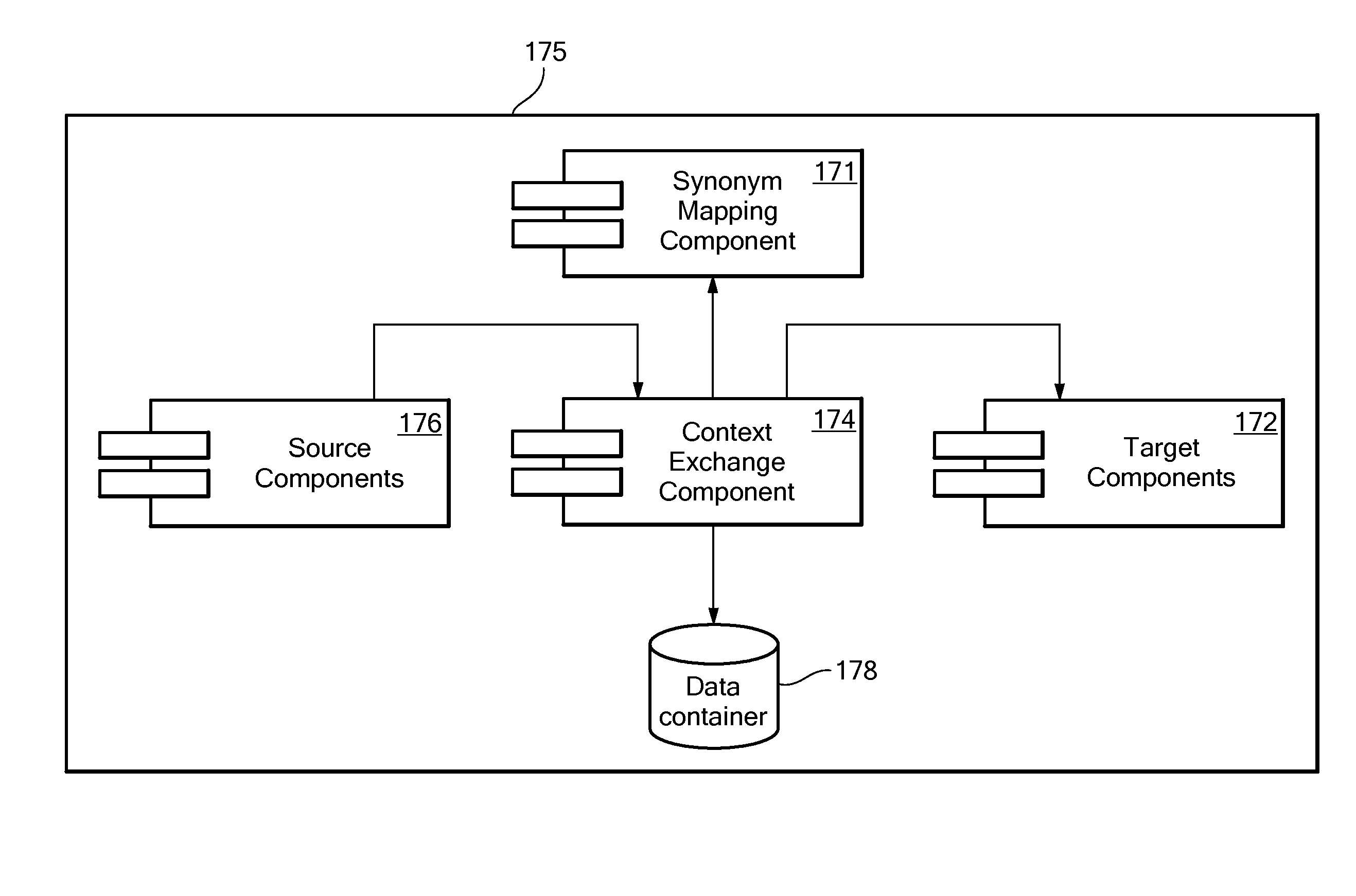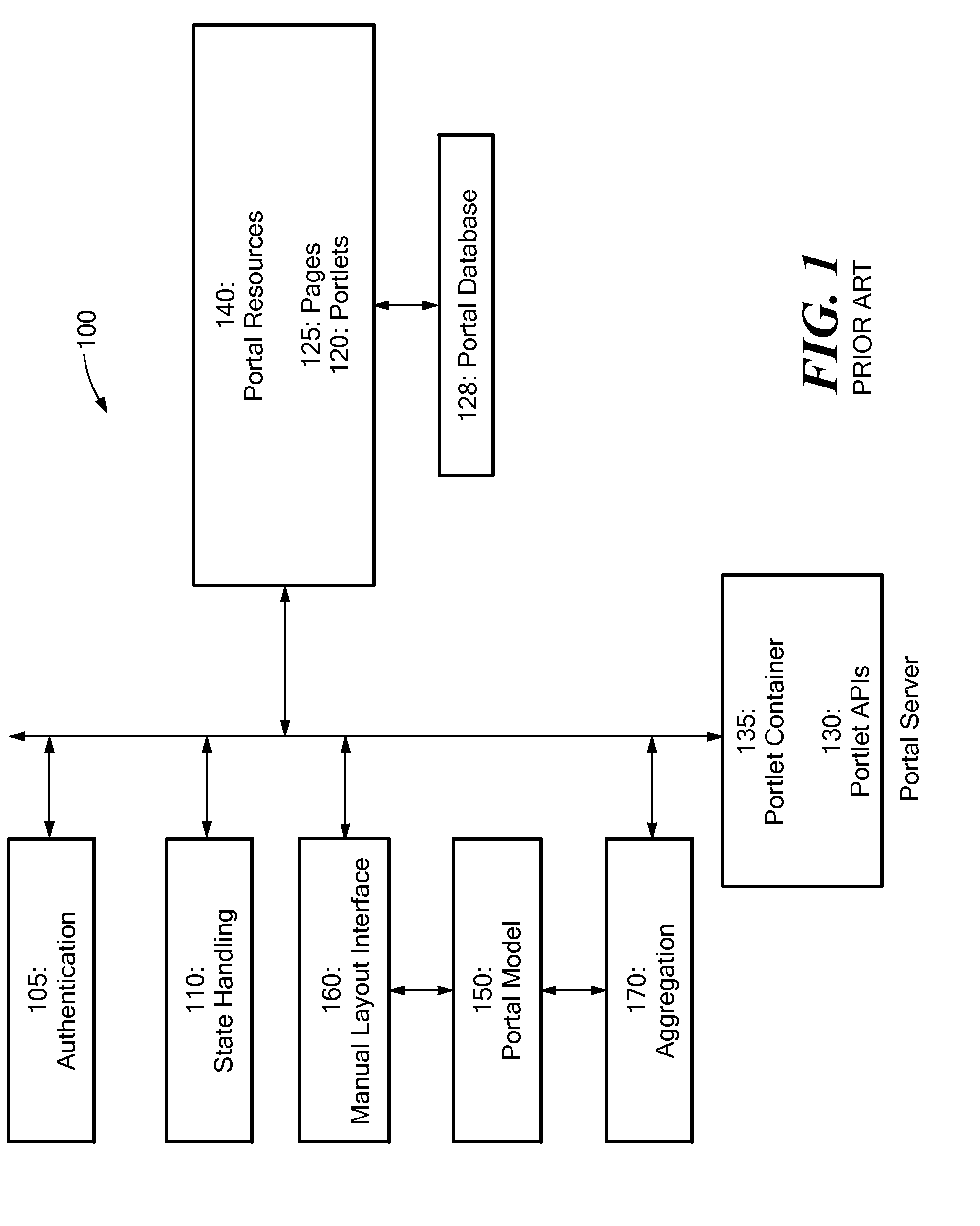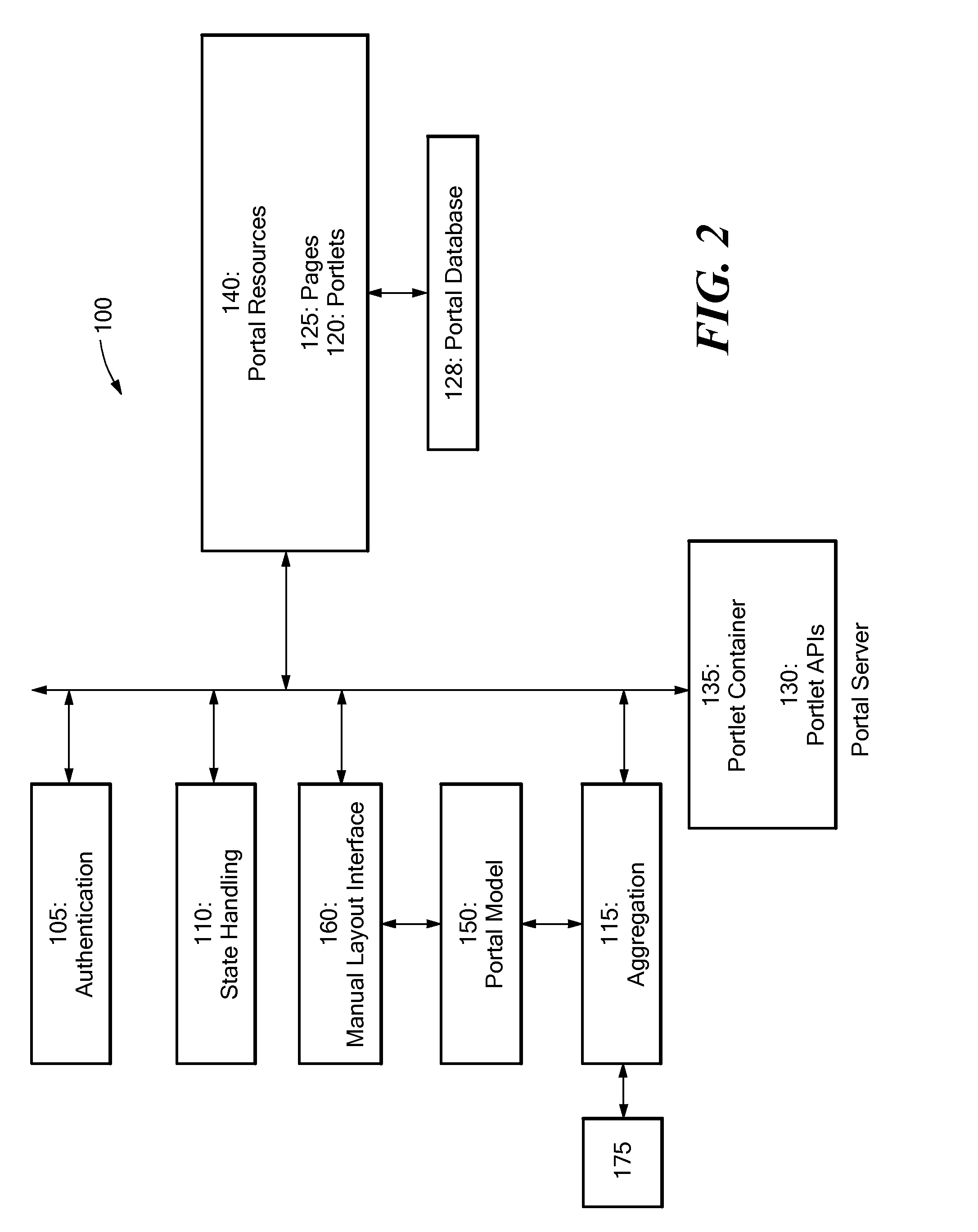Context-exchange mechanism for accumulating and propagating contextual information between applications
a contextual information and exchange mechanism technology, applied in the field of network computing, can solve the problems of not offering a good mechanism for intermediate storage of such information, no common data interface for exchanging data, and people booking travel are often distracted from their work, so as to facilitate information retrieval
- Summary
- Abstract
- Description
- Claims
- Application Information
AI Technical Summary
Benefits of technology
Problems solved by technology
Method used
Image
Examples
Embodiment Construction
[0037]With general reference to the Figures and with special reference now to FIG. 2, an illustrative embodiment of the present invention will be described in more detail next below.
[0038]In FIG. 2 an embodiment of the disclosed system provides the disclosed features described above at least in part through the component 175. Functional interfaces are provided between the component 175 and the aggregation component 170 as well as to the portlet container 135.
[0039]With reference now to FIG. 3, an embodiment of the disclosed component 175 includes a context exchange component 174 implementing the functionality of storing context-specific use data as mentioned above, for example customer name, customer address, travel date etc., in a data container 178 in distinct portions provided at least logically in a separated way for each context. Details thereof are illustrated in FIG. 5, wherein context containers 64, 66, 68 and 70 are depicted.
[0040]The content exchange component 174 is opera...
PUM
 Login to View More
Login to View More Abstract
Description
Claims
Application Information
 Login to View More
Login to View More - R&D
- Intellectual Property
- Life Sciences
- Materials
- Tech Scout
- Unparalleled Data Quality
- Higher Quality Content
- 60% Fewer Hallucinations
Browse by: Latest US Patents, China's latest patents, Technical Efficacy Thesaurus, Application Domain, Technology Topic, Popular Technical Reports.
© 2025 PatSnap. All rights reserved.Legal|Privacy policy|Modern Slavery Act Transparency Statement|Sitemap|About US| Contact US: help@patsnap.com



